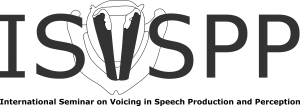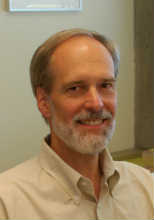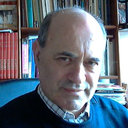

John Esling – University of Victoria, Canada
John Esling, Department of Linguistics, University of Victoria, Canada
Bio: John H. Esling is Professor Emeritus of Linguistics at the University of Victoria, former Secretary of the International Phonetic Association (1995-2003), Editor of the Journal of the International Phonetic Association (2003-2011), President of the International Phonetic Association (2011-2015), and member of the IPA Council and of the Permanent Council for the Organization of International Congresses of Phonetic Science. He has an MA in Linguistics from the University of Michigan (1972), where he studied with Ian Catford and Kenneth Pike, and a PhD in Phonetics from the University of Edinburgh, where he worked with David Abercrombie, John Laver, and James (Tony) Anthony.
He taught at the University of Leeds before moving to the University of Victoria in British Columbia, Canada, in 1981. He was Chair of the Department of Linguistics from 2008 to 2013. His research is in auditory and articulatory phonetics, particularly the categorization of voice quality, of vocal register, and of the phonetic production and modelling of laryngeal and pharyngeal sounds. He is the Principal Investigator on two research projects funded by the Social Sciences and Humanities Research Council of Canada: the Laryngoscopic Phonetic Research Project, to investigate speech articulation in the throat, and the Infant Speech Acquisition (InSpA) Project, an international collaboration based in Victoria with research teams in Canada, France, Morocco and China, to establish how infants first acquire the modality of phonetic speech-sound production.
A Fellow of the Royal Society of Canada, he is the author of over 100 scholarly articles and chapters and of numerous conference presentations, compiler of the University of Victoria Phonetic Database, section editor for Phonetics of the Encyclopedia of Language and Linguistics (2006), an editor of the Handbook of the IPA (CUP 1999), and an editor of the Cambridge English Pronouncing Dictionary (CUP 2011). He has collaborated with Prof. Jerry Edmondson and with the late Jimmy G. Harris in producing endoscopic videos to catalogue speech production in the larynx among the languages of the world. He is behind the App, iPA Phonetics, which illustrates the range of speech sounds and voice qualities in the world’s languages.

Fernando Martins – University of Lisbon, Portugal
Fernando Martins, University of Lisbon, Portugal
Bio: Fernando Martins is a member of the Laboratory of Phonetics since 1986. His main interests of research focus on the complexity of the speech chain, searching for acoustic cues in speaker identification tasks, in disguise, imitation and usual situations of human communication. Since 1996, he is an Expert in Forensic Phonetics.

João Veloso – University of Porto, Portugal
João Veloso, University of Porto, Portugal
Bio: João Veloso is a phonologist whose current interests focus on phonological primitives: elemental properties on which phonological complex representations are built. He has worked on the interface between phonetics and phonology and on the interfaces phonology/morphology and phonology/lexicon.

Luís Jesus – University of Aveiro, Portugal
Luis M.T. Jesus, University de Aveiro, Portugal – lmtj@ua.pt
Bio: Luis M. T. Jesus received his first degree in 1996 from the University of Aveiro, Portugal, the M.Sc. degree in Speech Coding and Synthesis in 1997 from the University of East Anglia, Norwich, UK, and the Ph.D. degree in Acoustic Phonetics in 2001 from the University of Southampton, UK. Since 2001, he has been lecturing at the School of Health Sciences (ESSUA), University of Aveiro, and has been a member of the Institute of Electronics and Informatics Engineering of Aveiro (IEETA), University de Aveiro, Portugal. His research interests include phonetics, speech production and perception, speech production models, and human communication pathology. He is a member of the The Acoustical Society of America (ASA), International Phonetic Association (IPA) and International Speech Communication Association (ISCA).